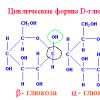Caffeine guide: action, effects, correct and lethal doses. Caffeine-sodium benzoate Caffeine in bodybuilding
What do mate, guarana, green tea, regular coffee, and a sports fat burner have in common? They all contain caffeine. In bodybuilding, it is used as a means of increasing concentration and performance. CNS stimulation allows the athlete to solve the tasks set by the coach and perform the training in full, despite fatigue, a calorie deficit on cutting, and distractions. Approximately 250 mg of caffeine a single time, according to studies, increase the performance of an athlete and help reduce fatigue. In practice, the substance is applied on the cut to enable you to train as usual without gaps, even if a strict diet is applied. There is evidence that caffeine speeds up fat burning and metabolic processes. It can help to lose weight, especially against the background of well-chosen training program and a meal plan.

Expected from caffeine:
- Increasing the energy potential of the body;
- Acceleration of protein synthesis processes and reactions of the nervous system;
- Removal of fatigue and drowsiness;
- Extension of allowable time under load;
- Increase in strength and endurance;
- Training adaptation improvements
It is known that in athletics caffeine intake before the competition is prohibited. The substance belongs to the doping group and can significantly stimulate the central nervous system, spur its work, and help achieve high results.
In bodybuilding, caffeine helps adaptation and allows you to concentrate on training, even if the athlete is tired, overworked at his usual job, or did not sleep well. The substance can be taken in excess dose, and then the exact opposite effect will be achieved. In case of an overdose, the athlete will feel drowsiness, fatigue, heart rhythm disturbances, and will not be able to train effectively.
To speed up the metabolism, caffeine is advised to drink about 30 minutes before the start of a workout. If a separate cardio is practiced, then strictly before it. To improve strength performance, take dosages of the order of 250 mg before driving or competitions. Empirically, it has been found that athletes add about 1-2 kg in the bench press if they use this simple trick.

In bodybuilding, high dosages are used, for example, 200-400 mg at a time. You can find recommendations that athletes up to 75 kg can only take 200 mg of caffeine, and heavier ones can add an additional portion. But in fact, the amount does not depend on the weight of the athlete, since it is necessary to take into account the excitability of the central nervous system, the work of other organs and systems, and the general response of the body to caffeine. There are people who cannot tolerate the substance. From any dosage, they experience only drowsiness and fatigue, and do not feel the rise and increase in athletic performance. It is better for such athletes to choose an amino acid complex for taking before training, and not to experiment with caffeine.
For those who feel relatively normal, you need to consider:
- The state of the cardiovascular system. At high blood pressure, tachycardia, and chronic heart disease, caffeine intake is prohibited. Even if the athlete does not feel discomfort, he must avoid increased stress on the cardiovascular system, and abandon the "controversial" substances;
- Kidney and liver health. There is evidence that in diseases of the excretory system, caffeine is recommended to be excluded until complete recovery. The reason is not the toxicity of the substance, but the fact that the athlete's body may not be able to cope with the acceleration of some metabolic reactions, and the diuretic effect of caffeine;
- The work of the central nervous system. Features of the response to caffeine are rarely taken into account by athletes. A variant is possible when the concentration increases, the body works correctly, and the state of health during training is excellent, but after training the athlete cannot fall asleep for a long time. Then you should abandon caffeine in favor of other substances that do not contain stimulants;
- The state of the autonomic nervous system. Many athletes complain of tremors in their limbs after consuming caffeine. It is not at all necessary that we are talking about an overdose of the active substance. Sometimes it's just an individual reaction

Caffeine is one of the controversial substances regarding the presence side effects. Many athletes claim that he does not have any, but doctors are sure of the opposite. On the part of the cardiovascular system, caffeine provokes tachycardia, increased heart rate and increased pressure. On the part of the lungs - rapid breathing, shortness of breath, and violation of the rhythm of breathing. From the excretory system - a powerful diuretic effect.
With an overdose of caffeine, tinnitus, dizziness, red flies before the eyes, pressure in the temples, a feeling of blood pulsation are possible. Sometimes the fingers become numb, cold sweat comes out, and there is a feeling of hypoglycemia.
Caffeine can cause a laxative effect, and provoke an upset gastrointestinal tract. An overdose of the substance enhances the effect. On the part of the gastrointestinal tract, discomfort in the oral cavity, dryness of the mucous membranes, and excessively active outflow of bile are often found.
Caffeine is an effective sports doping that is completely safe. To date, it seems possible to purchase caffeine in tablets and it is recommended to use it before. Caffeine is very common in carbonated drinks, and at the beginning of physical activity, it began to be used in fitness classes.
How to take caffeine tablets before a workout?
Although the final positive effect of caffeine has not been confirmed, it has long been used in sports. Studies have been conducted that have proven that when taking caffeine tablets, the consumption of glycogen, which contributes to the burning of subcutaneous fat, slows down. Many people are concerned about the question of how to take caffeine before training. It is recommended to take caffeine by mouth with a small amount of liquid 30 minutes before the start of the workout. One tablet is equivalent to 30 kilograms of body weight. But you can not take more than four tablets per day. It is also necessary to adhere to the standard requirement - to eat food no later than an hour and a half before playing sports. Pre-workout caffeine has a similar effect to a double-strong cup. When using it, you can feel a surge of strength, an increase in blood pressure, and it also contributes to an increase in the rhythm and heartbeat. With it, you can remove accumulated toxins from the body, get rid of edema and deliver the necessary oxygen, which has a positive effect on the burning of body fat.
What dosage of caffeine tablets should be used before training?
The dosage of caffeine in tablets is determined individually for each. For a professional athlete, the dosage must be selected, taking into account body weight, intensity and type of physical activity. For example, for a person involved in bodybuilding, it is recommended to take 10-20 mg per 1 kilogram of weight.
Why caffeine is needed in bodybuilding, the benefits of caffeine, what caffeine contains, how much coffee you can drink per day.
You can meet a lot of thoughts about caffeine, some say that it is an excellent pre-workout, others that it increases metabolism and leads to fat burning, others argue that it is a common stimulant of the nervous system and has no effect on the state of the figure. Only the true results of the effect of caffeine on the human body will be described below.
caffeine benefits
1. Improves performance
As a result of the experiments on 2 groups of subjects, it was revealed that the group that took caffeine in the amount of 150g. before training:
- performed 2-3 more repetitions in such exercises as deadlift and squats;
- 4.5% reduced rest time between sets;
- for the entire workout, the number of approaches in the exercises increased by 4-5
This suggests that caffeine blocks receptors in the nervous system that are responsible for feeling tired. However, you should not use it every time before training, otherwise the body adapts to it and will not give the desired effect, it should be taken only before a hard workout.
2. Strengthens mental focus
Have you ever wondered why coffee in the morning gives many people the opportunity to cheer up?! This is due to the fact that caffeine inhibits the action of various neurotransmitters that are responsible for the relaxation process. At the same time, caffeine intake enhances the work of the hormone dopamine, which is responsible for the feeling of pleasure.
In addition, caffeine in bodybuilding increases concentration on exercise, this has been found when training baseball players with iron, however, the dosage should not exceed 300mg. otherwise, the opposite effect is observed leading to muscle relaxation and loss of concentration.
3.Reduces post-workout pain
This effect is observed as a result of a decrease in the activity of the substance adenosine, which is responsible for the suppression of cheerfulness. By blocking adenosine, caffeine reduces the pain caused by this component.
4.Speeds up the recovery process
According to scientific evidence, post-workout co-administration of caffeine with carbohydrates, accelerates glycogen by 66%.
Remember, caffeine has no direct relation to the process of fat burning or weight gain, it acts on nervous system, thanks to which you can work harder, which will allow you to achieve great results, both in terms of creating an athletic figure, and in terms of getting rid of excess body fat.

How much coffee can you drink?
The daily intake of coffee per day is 400 mg. This rate is contained in approximately 2-3 cups of the drink.
To make it easier to understand, the concentration of caffeine in different coffee drinks per 1 serving is clearly shown below:
- 70-80 mg. contains in cappuccino;
- 80-130 mg. includes expresso;
- 60-100 mg. contains instant coffee;
- 110-170 mg. the maximum concentration of cooked in a Turk;
- 100 mg. contain 1.5 teaspoons of natural ground coffee.
For pregnant daily allowance coffee should not exceed 200 mg., roughly speaking 1-2 cups of the drink.
Did you know that when using 1 gr. caffeine per day (6-10 cups) begins arrhythmia, increased blood pressure and tachycardia, and the lethal dose is the use of 10 grams per day. (60-100 cups).
What contains caffeine
1. Caffeine in sports nutrition
You can buy caffeine in sports nutrition, but you should not expect big fat burning from it. You should not take high doses: otherwise, when sorting out, in addition to an increased heartbeat, irritability, sweating, insomnia, trembling in the limbs can be observed.
2. Caffeine tablets
Includes sodium benzoate and synthetic caffeine, it is released in 100 mg tablets. It is necessary to take 1-2 tablets before starting a workout, which allows you to increase physical activity relieve drowsiness and chronic fatigue.
3.Natural coffee
Try to always take regular black ground coffee, and leave it in tablets and in the form of sports nutrition as a last resort. After all, a cup of hot coffee is delicious and pleasant.
Athletes, like no one else, need stimulants to improve performance in the gym. One such helper is caffeine: pills are the most common form. Caffeine can be bought both as a separate supplement and as part of a pre-workout complex. There is no doubt that caffeine tablets in sports nutrition are a popular product.
Caffeine: tablets, capsules, liquid concentrate - found forms on store shelves
It is up to the buyer to choose caffeine in tablets or another type for sports. But if you objectively look at the facts, it becomes clear:
- The supplement stimulates the nervous system to increase performance, both mental and physical;
- "Kills" drowsiness, lethargy and fatigue;
- Enhances lipolysis - the breakdown of fat cells;
- Enhances thermogenesis - increases body temperature, creating a furnace for fats;
- Increases the concentration and reaction speed of the athlete;
- Accelerates metabolism
Clear benefits for pre-workout energizing as well as helping with "drying". You can see the price of caffeine in our online store by going up the page above. There are various forms of substances, volumes and concentrations.
You can also buy caffeine in tablets at a pharmacy, but here the question is in quantity and dosage - how sports supplement caffeine has a more favorable price. Therefore, before you buy caffeine: tablets, capsules or concentrate - compare prices and volumes of packages.
Caffeine, price
Caffeine tablets, capsules or concentrate is a beneficial dietary supplement. For some 500 rubles, buying an additive is quite realistic. Plus, this will be the volume of packaging. The best option is caffeine tablets. One jar can even last for several months. Once you've chosen a sports caffeine that's priced right for you, take it wisely and don't exceed the recommended doses and cycle times.
You can buy sports nutrition and caffeine in the SportFood online store
As mentioned above, the supplement can be purchased separately or as part of a pre-workout. Types of sports nutrition caffeine: tablets, capsules and liquid form.
In the capsule and tablet versions, the price, as well as the filling, do not differ so significantly - in capsules it is a little more expensive. In addition, buying caffeine in capsule form makes sense for better absorption by the body. Absorption in the stomach in this form is somewhat better than pills. Liquid caffeine concentrate has the highest price in terms of the active substance, and is absorbed faster than other types of dietary supplements.
Conclusion
Sports nutrition is not limited to this stimulant - check out our range for more details. All types of substances are on sale: caffeine in tablets, capsules, as well as pre-workouts with this component. This page lists individual supplements.
For any questions, please contact our call center. Contact specialists are active athletes of Russia. They will be happy to answer your questions and help you buy caffeine tablets, sports nutrition and other products. Also, do not forget that in addition to caffeine, you can buy any sports nutrition offline in the SportFood stores in your city.
Sport is movement, and movement is life. Everyone is familiar with this statement and many know it firsthand, but from personal experience. Those who dedicate themselves to regular sports sometimes experience a lack of motivation for training. At such moments, a person is looking for external sources of stimulation to engage in classes and often resorts to coffee.
Benefits of coffee
Everyone knows that coffee is an awakening drink. It invigorates, energizes, makes you be more active, what else do you need before the upcoming workout!? But here you need to be aware of the effect of coffee on the human body during sports: is it useful or not. Let's start with the benefits of drinking coffee before training.

Coffee is rich in magnesium
Magnesium is a valuable mineral, especially useful for people who are actively involved in sports, because. it is a catalyst for many reactions that occur in the human body. With a lack of magnesium, all enzymatic processes in the body fall asleep, respectively, you will not be able to stay in a state of anabolism and build new muscle tissue.
Coffee increases efficiency, increases strength and endurance
In one study at the University of Athlete Training in the United States, scientists were able to prove that an athlete can increase their strength and power performance if they receive the right dose of caffeine before training. The study says that for a 90 kg strength lifter, this dose is on average 6-8 cups of coffee, but everyone is individual and is determined by the body's sensitivity to insulin. Scientists have also suggested that caffeine acts directly on the muscles (for greater strength and power), and not just in the context of the central nervous system.
Caffeine speeds up recovery and reduces muscle pain
Studies conducted at the University of Carolina with three control groups found that caffeine was able to increase resynthesis.
Scientists suggest that caffeine may improve muscle glycogen resynthesis after exercise and promote the burning of fatty acids for fuel during exercise.

The three race walking groups were given drinks before the race:
- The first group is coffee. /li>
- The second group is carbohydrates.
- The third group - placebo (nothing).
The results for non-stop walking were as follows:
- The first group - 48 minutes (caffeine).
- The second group - 32 minutes (carbohydrates).
- The third group - 19 (placebo).
Increases the burning of subcutaneous fat
Coffee raises your metabolic rate so you burn more calories, which can help your body burn fat instead of glucose for energy. Coffee also regulates blood sugar levels and helps improve insulin sensitivity.
A study by the US Institute of Nutrition found that caffeine is effective tool to help with weight loss. In particular, a 22-week study on 16 overweight men showed that participants taking high concentrations of caffeine lost significant weight (27.5% of their weight) and thus returned to normal weight.
Increases reaction speed and increases motivation
Studies were conducted on football players who, due to the inability to sleep, lost concentration during training. Taking 4 mg of caffeine per 1 kg of body weight, football players improved their reaction speed, increased motivation and concentration in training, and their endurance was also noticeably improved.
Cons of coffee
We talked about the pros, but like a coin, caffeine has a downside.

A high concentration of caffeine in the body causes nervous exhaustion
Since coffee directly affects the central nervous system with an exciting effect and makes your nerve cells be more active, then they simply get tired of increased doses of caffeine.
Coffee is addictive
Indeed, there is such a term as “coffee addiction”, they talk about it like nicotine addiction, but of course it does much less harm. If you regularly load coffee before training, then during the period of refusal of caffeine, there may be a significant decline in motivation and endurance during training. Refusal of coffee will entail headaches and increased irritability, of course, this has a temporary effect (1-2 weeks).
Violation of the water balance
Coffee can cause water imbalance, and this is especially importance during and after training. Coffee slows down the absorption of fluid from the intestines, which leads to dehydration and possible gastrointestinal disorders.
Selection of sports coffee drinks

So, we have understood the pros and cons of drinking coffee before training, so now, starting a new sports day, listen to your body and weigh the pros and cons of saturating yourself with caffeine. We recommend that you drink coffee in the morning or two hours before training, and be sure to drink a glass (or better two) drinking water after a cup of fragrant and invigorating coffee. Below is a small selection of interesting caffeinated drinks designed specifically for athletes.
Strong Coffee Company Original - Daybreaker

Developed by athletes, Strong Coffee is a sugar-free instant latte that contains collagen protein, which improves joint health and speeds up their recovery from injuries. Plus, it contains powdered MCT oil and fatty acids to help increase stamina.
Composition of the product:
- Instant organic coffee
- collagen
- MCT Oil
- L-theanine
- Hyaluronic acid
Weight: 335 grams (12.8 oz)
Price: 45$
Where could I buy: on the Strong Coffee website
Delivery: No direct delivery to Russia
Laird Superfood InstaFuel coffee

This blend is modeled after the morning drink of Laird Hamilton, America's first professional surfer and professional volleyball player. It combines freeze-dried Arabica coffee with a dose of coconut oil, coconut milk, and Aquamin, an algae-based mineral supplement that some studies show can improve bone density and reduce inflammation.
Composition of the product:
- Instant Arabica coffee
- Dry coconut milk
- Aquamin
- MCT Oil
Weight: 227 grams (8 oz)
Price: 781 rubles
Where could I buy: iHerb
Delivery: iHerb delivery in Russia is available, .

Read also...
- How to cook semolina porridge in milk and water without lumps correctly and how much: recipes and proportions with photos and videos, including for children In what dishes should semolina be cooked
- The most famous national Ukrainian dish
- The history of mushroom picking in Russia
- Birthday May 5 Characteristics of a man


















